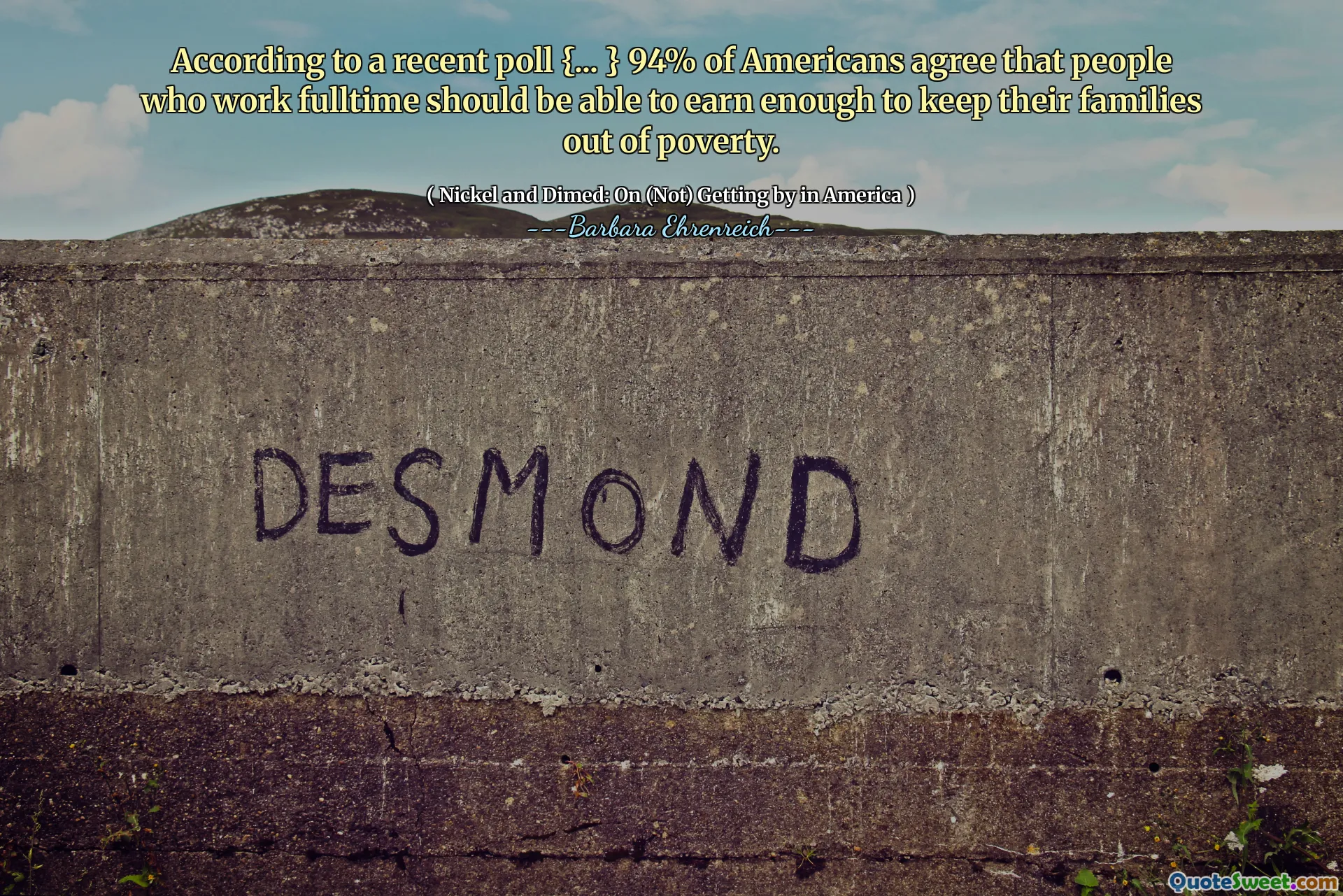
According to a recent poll {... } 94% of Americans agree that people who work fulltime should be able to earn enough to keep their families out of poverty.
The overwhelming consensus reflected in this poll highlights a fundamental expectation in our society about the relationship between work and economic security. The idea that full-time work should ensure a living wage capable of supporting a family is not just a moral argument; it is a recognition of the dignity of labor and the need for fairness in economic systems. Barbara Ehrenreich’s book, Nickel and Dimed: On (Not) Getting By in America, brings this issue into sharp focus by chronicling the real struggles of working Americans who, despite their full-time efforts, remain trapped in poverty. Her investigative narrative reveals the harsh realities behind the statistics, challenging the societal assumption that hard work alone naturally leads to financial stability.
The 94% agreement points to a shared understanding among Americans that something is fundamentally broken in how wages are structured relative to the cost of living. It underscores the urgent need for policies that elevate minimum wages, ensure collective bargaining rights, and provide better social safety nets. Moreover, the quote and Ehrenreich’s work together push us to confront uncomfortable truths about social inequality and the barriers that prevent economic mobility.
This widespread recognition of the problem offers a foundation for collective action, advocating for economic justice that accounts for the realities faced by working families. Ultimately, it compels us to rethink economic priorities and to aspire to a society where no full-time worker has to struggle to keep their family above the poverty line.






